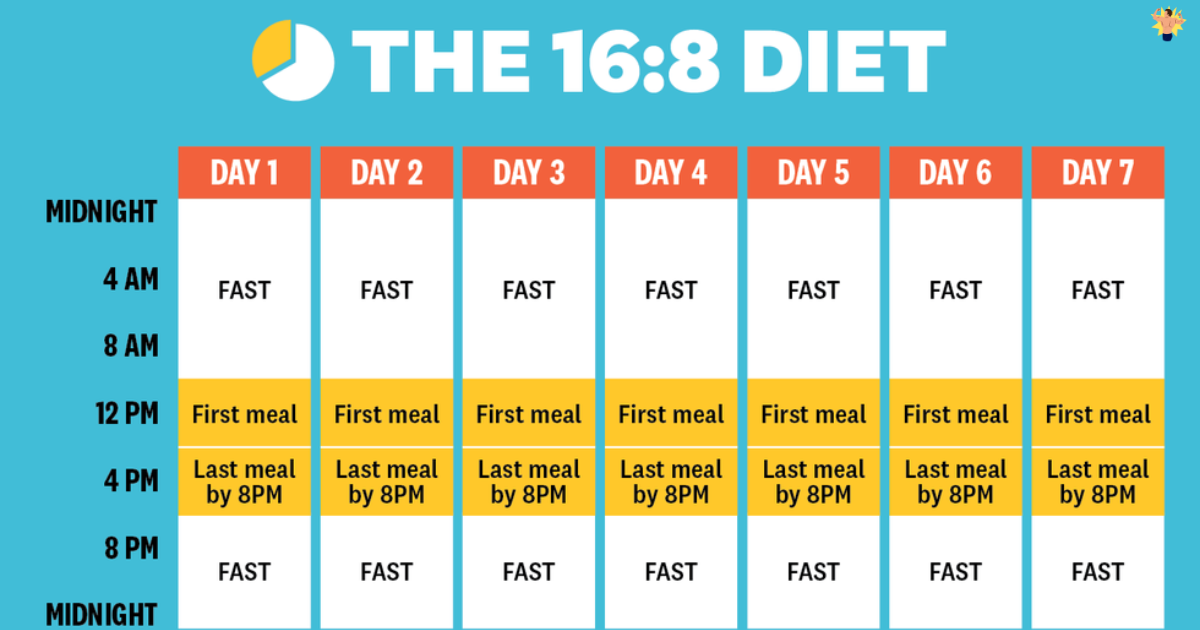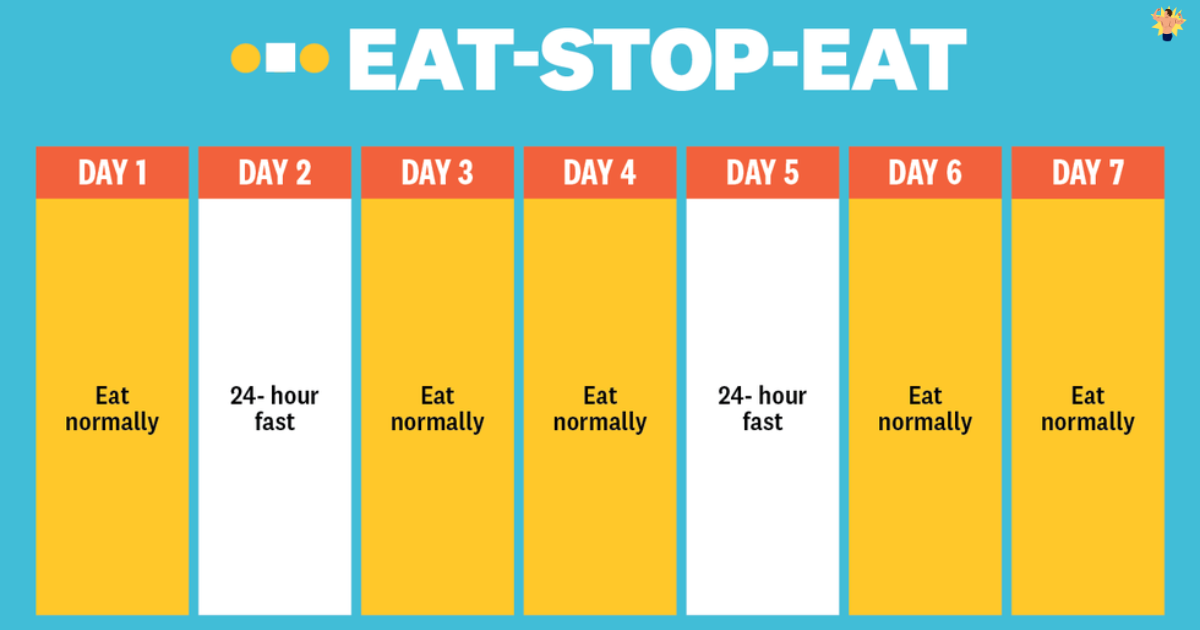In a world filled with diet trends and weight loss programs, intermittent fasting has emerged as a powerful and effective approach to improving health, losing weight, and enhancing overall well-being. Unlike many other diets, intermittent fasting is not about what you eat but rather when you eat. This unique approach has gained popularity for its simplicity and proven health benefits. In this comprehensive guide, we will delve into the world of intermittent fasting, breaking down its various methods, the science behind it, potential benefits, and practical tips for incorporating it into your lifestyle.
Understanding Intermittent Fasting
What Is Intermittent Fasting?
A kind of eating called intermittent fasting emphasizes when you eat rather than what you consume. The essence of this approach lies in creating distinct periods of fasting and eating. During the fasting periods, your body isn’t taking in any substantial calories, allowing it to tap into its energy reserves for fuel. This concept may seem novel, but it has ancient roots. Fasting has been practiced for centuries to promote physical and spiritual health in various cultures and religions.
History of Intermittent Fasting
The practice of fasting has deep historical and cultural significance. It can be traced back to early civilizations, including ancient Greece, where fasting was considered a method of self-purification and an aid to mental clarity. In religious traditions such as Islam and Christianity, fasting is observed as a means of spiritual growth and self-discipline.
Intermittent fasting, in its modern form, gained prominence through research conducted in the mid-20th century and further advancements in the 21st century. Scientists began exploring its health benefits and its potential for promoting longevity.
Methods of Intermittent Fasting
16/8 Method

The 16/8 method is perhaps the most popular form of intermittent fasting. It is remarkably straightforward, requiring you too fast for 16 hours and restricting you’re eating to an 8-hour window. For instance, you may eat between 12:00 and 8:00 PM and then refrain from eating until noon the next day. This method is easy to follow, as it allows you to skip breakfast, which is the main reason it’s so popular. It can help regulate insulin levels, promote fat loss, and enhance metabolic flexibility.
5:2 Method

The 5:2 method, known as the Fast Diet, involves eating normally for five days a week and restricting your calorie intake on the remaining two non-consecutive days. On the fasting days, men typically consume around 600-700 calories, while women consume 500-600 calories. This approach has shown promising results in weight loss and improving insulin sensitivity.
Eat-Stop-Eat

Eat-Stop-Eat involves fasting for a full 24 hours once or twice a week. For instance, you might choose to fast from dinner one day to dinner the next day. This method can provide benefits like enhanced fat loss, improved insulin sensitivity, and the stimulation of autophagy, the process by which your body clears out damaged cells.
Alternate-Day Fasting

You alternate between fasting days and days when you normally eat when you practice alternate day fasting. You either eat extremely few calories or none during fasting days. You can eat your normal meals on eating days. This method can be a bit more challenging for some, but it offers flexibility and may lead to impressive weight loss results.
The Warrior Diet

The Warrior Diet is a 20/4 fasting pattern, involving a 20-hour fast followed by a 4-hour eating window, typically in the evening. During the fasting hours, you can consume minimal calories, like small snacks or a light meal. This method aligns with our circadian rhythm, allowing your body to fast during the day when it’s most sensitive to insulin and eat when your metabolism is more active. It’s gained popularity for its potential to aid in fat loss, improve mental clarity, and support overall health.
The Science Behind Intermittent Fasting
What Happens to Your Body During Fasting?
Intermittent fasting triggers a cascade of physiological changes in your body. During fasting, insulin levels drop significantly, prompting your cells to access stored energy, mainly in the form of glycogen and fat. The absence of continuous food intake also allows for cellular repair processes to kick into high gear. Additionally, autophagy, the cellular self-cleaning process, is activated, which helps remove damaged cells and promote overall cellular health.
Benefits of Intermittent Fasting
The scientific community has increasingly recognized the potential health benefits of intermittent fasting:
- Weight Loss: Intermittent fasting can help create a calorie deficit, making it easier to shed excess pounds.
- Improved Insulin Sensitivity: By reducing insulin resistance, intermittent fasting can lower the risk of type 2 diabetes.
- Cardiovascular Health: Fasting may lead to reduced risk factors for heart disease, including lower blood pressure and improved cholesterol levels.
- Brain Health: Intermittent fasting may enhance brain function, promoting clarity and memory retention.
- Longevity: Some animal studies suggest that intermittent fasting may extend lifespan and slow the aging process.
Common Myths and Misconceptions
Despite its growing popularity, intermittent fasting has faced its share of myths and misconceptions. One of the most common is the belief that fasting leads to muscle loss. Intermittent fasting, when done properly, helps maintain lean muscle mass. Other misconceptions revolve around extreme fasting regimens, which may not be suitable or safe for everyone.
Intermittent Fasting and Weight Loss
How Does Intermittent Fasting Aid Weight Loss?
Intermittent fasting promotes weight loss through multiple mechanisms. The reduced calorie intake during fasting periods results in a caloric deficit, a fundamental aspect of weight loss. Furthermore, fasting enhances fat oxidation and metabolic rate, making it easier for your body to burn stored fat for energy. It’s also shown to reduce appetite, making it easier to control food intake during eating windows.
Success Stories
Numerous people’s lives have changed because of intermittent fasting. Stories of remarkable weight loss and health improvements serve as powerful motivation for those considering this approach. Real-life accounts highlight the potential of intermittent fasting to bring about substantial positive changes in people’s lives.
Tips for Effective Weight Loss
Effective weight loss through intermittent fasting requires a structured approach. Here are some practical tips:
- Stay Hydrated: Drinking water and herbal teas can help control hunger and stay hydrated during fasting periods.
- Choose Nutrient-Dense Foods: When you do eat, opt for whole, nutritious foods that provide essential vitamins and minerals.
- Regular Exercise: Complement your fasting routine with regular physical activity to enhance fat loss and overall health.
Intermittent Fasting and Health
Managing Chronic Conditions
Intermittent fasting may play a role in managing chronic conditions like type 2 diabetes and heart disease. By improving insulin sensitivity and reducing risk factors, it can complement existing treatment plans and enhance overall health. However, you must consult a medical professional before making any significant dietary changes.
Mental Health and Cognitive Benefits
The brain benefits significantly from intermittent fasting. Fasting can increase the production of brain-derived neurotrophic factor (BDNF), a protein that supports cognitive function and the growth of new neurons. It may also reduce inflammation in the brain, potentially lowering the risk of neurodegenerative diseases like Alzheimer’s.
Getting Started with Intermittent Fasting
Consultation with a Healthcare Professional
Before starting any fasting regimen, it’s vital to consult with a healthcare professional, especially if you have underlying health conditions or are taking medications. They can provide personalized guidance and monitor your progress to ensure that intermittent fasting is safe and effective for you.
Planning Your Fasting Schedule
Your fasting schedule should align with your lifestyle and goals. If you’re new to intermittent fasting, consider starting with the 16/8 method or the 5:2 method. As you become more accustomed to fasting, you can experiment with other approaches and find what works best for you.
Managing Hunger and Cravings
Hunger and cravings are common challenges when fasting. To manage these, try the following:
- Stay Busy: Engage in activities to distract yourself from thinking about food during fasting hours.
- Stay Hydrated: Drinking water or herbal teas can help reduce hunger.
- Gradual Adjustments: If fasting for long periods seems challenging, consider gradually extending your fasting window over time.
FAQs
What is the primary goal of intermittent fasting?
The primary goal of intermittent fasting is not only weight loss but also to promote overall health and well-being. It can help with weight management, improve metabolic health, and may have potential benefits for chronic conditions and brain function.
Is intermittent fasting suitable for everyone?
Intermittent fasting is generally safe for most people. However, it may not be suitable for pregnant or breastfeeding women, individuals with a history of eating disorders, or those with certain medical conditions. It’s essential to consult with a healthcare professional before starting any fasting regimen to ensure it’s safe for your specific circumstances.
Can I exercise while intermittently fasting?
Yes, you can exercise while intermittently fasting. In fact, many people find it beneficial to exercise during their fasting period as it can enhance fat burning. However, it’s essential to stay hydrated and listen to your body. If you feel weak or dizzy, it might be best to adjust your exercise routine or time it with your eating window.
What can I consume during the fasting period?
During fasting hours, it’s generally recommended to consume water, herbal teas, and black coffee without added sugars or high-calorie creamers. These beverages can help control hunger and keep you hydrated. Avoid consuming calories, as it may break the fast and disrupt the physiological benefits of fasting.
When using intermittent fasting, how long does it take to notice results?
Results can vary depending on the individual and their specific goals. Some people may notice changes within a few weeks, such as weight loss or improved energy levels. However, long-term health benefits often become more apparent with consistent practice over several months.
Can I personalize my intermittent fasting schedule?
Absolutely! The versatility of intermittent fasting is what makes it so appealing. You can personalize your fasting schedule to align with your lifestyle and preferences. If one method doesn’t suit you, there are various other approaches to try.
Intermittent fasting presents a unique and accessible way to improve your health, achieve your weight loss goals, and enhance your overall well-being. With its various methods, scientific backing, and personalized strategies, intermittent fasting is a valuable addition to the world of health and nutrition. Whether you’re looking to shed excess weight, boost your metabolic health, or simply experience the mental clarity that fasting can provide, this approach has something to offer for everyone. The time to embark on your intermittent fasting journey is now, as it could be the transformative step toward a healthier and happier you.
